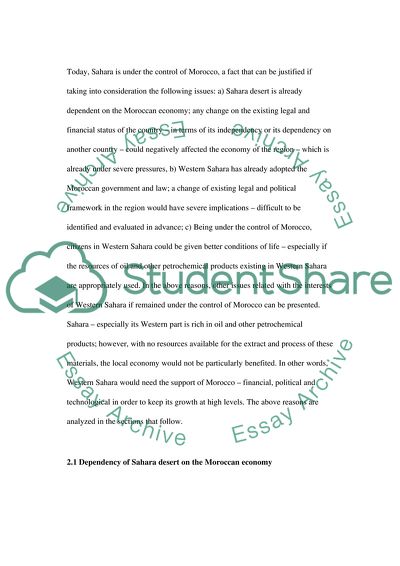Cite this document
(The Sahara Desert Should Belong to Morocco Country Coursework, n.d.)
The Sahara Desert Should Belong to Morocco Country Coursework. https://studentshare.org/politics/1723610-the-sahara-desert-should-belong-to-morocco
The Sahara Desert Should Belong to Morocco Country Coursework. https://studentshare.org/politics/1723610-the-sahara-desert-should-belong-to-morocco
(The Sahara Desert Should Belong to Morocco Country Coursework)
The Sahara Desert Should Belong to Morocco Country Coursework. https://studentshare.org/politics/1723610-the-sahara-desert-should-belong-to-morocco.
The Sahara Desert Should Belong to Morocco Country Coursework. https://studentshare.org/politics/1723610-the-sahara-desert-should-belong-to-morocco.
“The Sahara Desert Should Belong to Morocco Country Coursework”. https://studentshare.org/politics/1723610-the-sahara-desert-should-belong-to-morocco.


